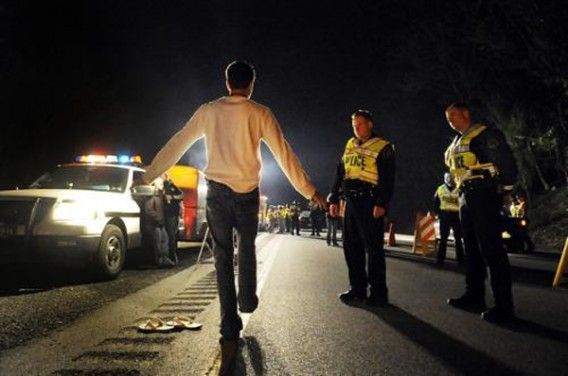California DUI Checkpoints – Know Your Rights
DUI Checkpoints were first introduced to California in the mid 1980's. The very first DUI checkpoint was performed in the town of Burlingame and was highly publicized prior to its implementation. Citizens of Burlingame brought suit against the Burlingame police department three days after that first DUI checkpoint occurred. These Petitioners alleged that these DUI checkpoints violated the 4th Amendment of the Constitution, the protection against unreasonable search and seizure. The case is dubbed Ingersoll v. Palmer, 43 Cal. 3d 1321, made the case made it all the way to the Supreme Court of California.
The Court ruled that the California constitutional principles are based on the same considerations as the Federal Constitution and as such there is a balance test to be performed where the governmental interests served are balanced against the intrusiveness of the detention.
The Court stated that the governmental interest involved is the prevention and determent of conduct injurious to persons and property and the intrusion into Fourth Amendment interests was no greater than that of other regulatory checkpoint inspections which are already in place around the nation.
Given the fact that there are still DUI checkpoints taking place in California it is obvious how the Court ruled. However, there are strict guidelines which must be adhered to by the police officers in control of these checkpoints.
Firstly, all decisions relating to the checkpoint must be made by supervisory law enforcement personnel. Secondly, there must be a neutral formula in place at each checkpoint determining which cars get pulled over, such as every fourth or third car gets checked. Third, the police officers at each checkpoint must maintain strict safety procedures to ensure minimal risk to the drivers and the officers. Fourth, the location of the checkpoint must be determined by policy-making officials and not by officers in the field. Usually the checkpoint will be placed in a location with a high rate of drunk-driving related accidents or a high amount of DUI arrests. Fifth, the time and duration of checkpoint are of the utmost importance, as checkpoints at night will prove to be more hazardous. Furthermore, the roadblock used by the police officers to stop motorists must be highly visible and maintained in such conditions so as to ensure to minimize hazard to motorists. Also, the average time of the detention of each driver should be minimal so as to reduce the intrusive nature of the stop. There is also the fact that each and every DUI checkpoint is publicized prior to its implementation.
This is a lot of criteria to meet in order to make sure that the DUI checkpoint is Constitutional, and a good DUI attorney knows that the key to every case is the details. Put your trust in local DUI attorney Kirk Tarman.


